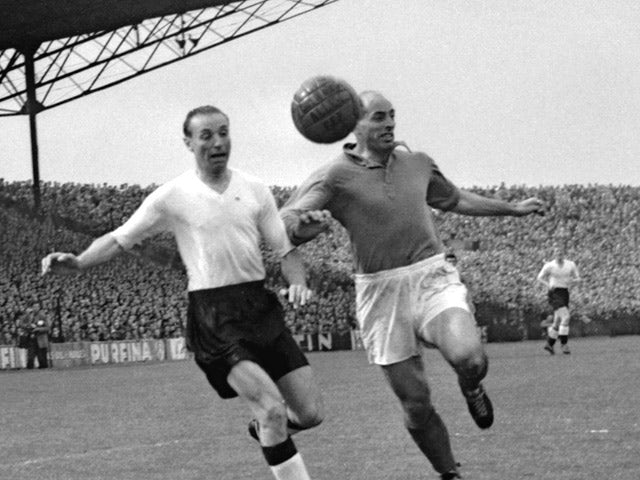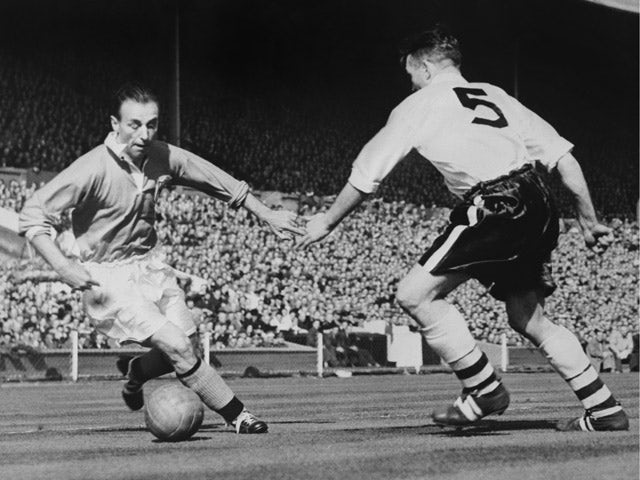Widely considered to be one of England's greatest footballers of all time, Sir Stanley Matthews pushed the boundaries by playing professional football into his sixth decade and left a legacy that many of the current Three Lions crop can only dream of.
The first ever football star to be knighted, and the only one to receive that honour while still playing, the Stoke-On-Trent native broke many records during his 32-year career at both club and international level.
 © Getty Images
© Getty Images
While he is best remembered at Blackpool for his performance in the 1963 FA Cup final, which is more commonly referred to now as 'The Matthews Final' due to his tricky wing play in helping the Seasiders claim the famous crown after twice missing out in the previous five years, Matthews also earned a place in Stoke City folklore across two separate spells by helping his hometown team to silverware of their own.
Despite making 700 appearances for his only two club sides, Matthews is best remembered by many for his exploits with England. It was on this day in 1957 that the 'The Wizard of Dribble' finally called time on his international career, setting another couple of records in the process.
Sir Stan became the oldest player to represent the Three Lions at 42 years and 103 days, an achievement of sorts which still stands to this day, while his 22 years and 228 days of service to the national team remains by far and away the longest of any player before or since his time.
 © Getty Images
© Getty Images
The game itself, a 4-1 victory over Denmark in Copenhagen, virtually secured England's place at the following year's World Cup in Sweden. Walter Winterbottom's side still had one more game left to play in that qualifying campaign, but Matthews was not called up to the squad, meaning that cap number 54 picked up in the Danish capital - a reduced figure due to the postponement of football during World War II - would prove to be his last.
Matthews would continue his club career for another eight years until he finally decided to call it a day, but only after reflecting on a career that saw him named the inaugural Ballon d'Or winner, earn recognition for his services to the sport from the Queen, and of course enter his name into football folklore the world over as a result of his numerous scintillating displays and longevity.
His death in 2000 at the age of 85 saw up to 100,000 people line the streets of Stoke to pay their respect to a gentleman of the game, while earlier this year events were held at the player's former clubs to mark the century of his birth in 1915. His statue still takes pride of place outside the Britannia Stadium, too, ensuring that the true footballing great will be remembered for generations to come.







